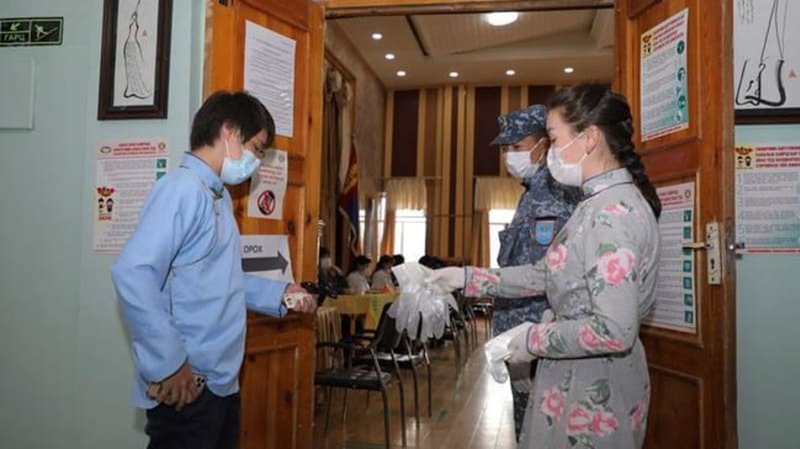
Mongolian People’s Party retains strong parliament majority
ULAANBAATAR, Mongolia — The Mongolian People’s Party retained a strong parliamentary majority, preliminary election results showed Thursday, as the U.S.-allied nation sandwiched between Russia and China held onto its democratic principles amid economic woes.
The MPP secured 62 of 76 seats, while the main opposition Democratic Party won 11 seats and three others were taken by independents and coalitions, the General Election Commission said Thursday.
People followed strict social distancing measures during Wednesday’s vote in a vast, landlocked country that has had considerable success in fending off the coronavirus. Voters maintained 2 metres (6.5 feet) between them while standing in lines at polling stations in the capital, Ulaanbaatar. Once inside the polling place, election workers checked their temperature and distributed hand sanitizer.
Mongolia has recorded just 215 cases of COVID-19, all of them imported, and no one has died.


